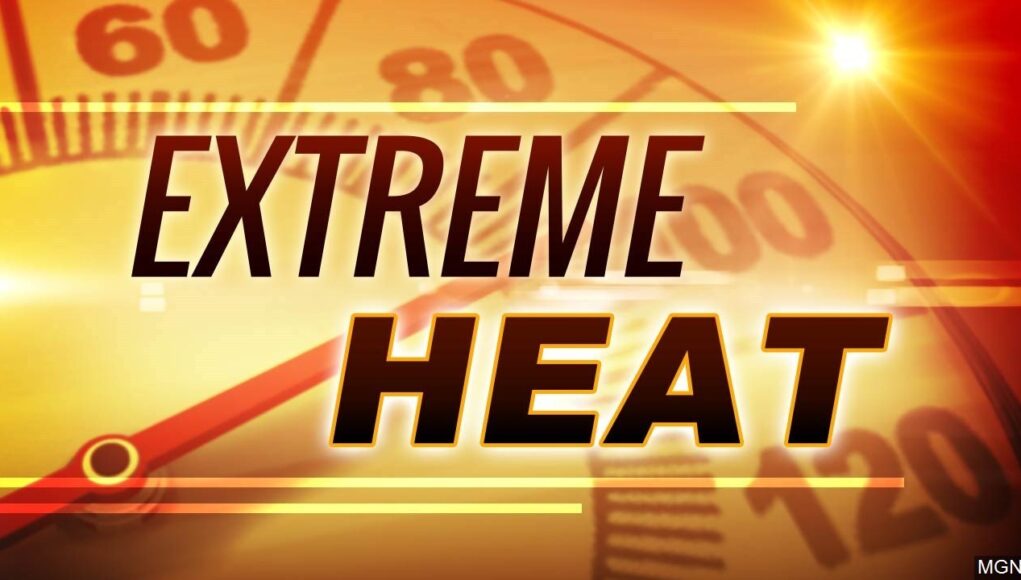HOW TO STAY COOL DURING EXTREME HEAT & COVID-19
Hot weather and extreme heat can cause serious illness and be life-threatening, and every year we see more and more extreme heat days. This summer, Philadelphia –like so many other communities across the nation — will need to manage and prepare for hot weather and extreme heat as well as continuing to manage COVID-19.
COVID-19 presents particular challenges in the summer since places where people in Cambridge generally go to cool off, including cooling centers, libraries, and malls are likely to remain closed. Finding ways to stay cool and safe, both at home and outside, are more important this summer than ever.
What is extreme heat?
Extreme heat is a prolonged period of very hot weather, which may include high humidity. In Philadelphia a “heat wave” is usually defined as a period of three or more consecutive days above 90ºF (Fahrenheit) or 32.2ºC (Celsius). Click here to learn more about heart-related terms (e.g., heat advisory, heat warning).
How do I stay cool during extreme heat and COVID-19?
- Know the signs of heat-related illnesses.
- Headaches, dizziness, nausea, confusion, cramps, high body temperature, or a fast pulse are among the signs of heat-related illness.
- If you are experiencing any of these symptoms, seek medical help immediately and move to a cooler place. Learn more.
- Stay hydrated.
- Keep drinking water, even if you don’t feel like it. Drink two to four glasses of cool fluids every hour.
- Avoid alcoholic drinks and too much caffeine and sugar.
- Bring water with you wherever you go outside since public water fountains are currently turned off due to the COVID-19 pandemic.
- Protect yourself from the sun.
- Use sunscreen that is SPF 15 or higher and look for those that say “broad spectrum” or “UVA/UVB protection” on their labels.
- Wear loose-fitting and light-colored clothing to keep cool. You can also wear a hat and sunglasses.
- Plan ahead. It’s important to plan ahead if you are going to stores or supermarkets. Capacity limitations in stores might mean that you have to wait outside in the sun. Try to plan shopping trips early in the morning to avoid the hottest part of the day.
- Don’t forget to wear your mask or face covering.
- Switch to a cotton bandana if your face mask is too heavy or thick to wear in the heat.
- If you are feeling overheated while wearing your mask, take it off for a moment and breathe making sure that you are six feet apart from others. Be sure to put it back on when you are ready to continue. Learn more about wearing a face covering safely in hot weather here.
- Stay cool indoors.
- Close windows and blinds during the day.
- Take cool showers.
- Use air conditioning or fans. However, when the temperature is in the high 90s (or higher than 32.2ºC), fans will not prevent heat-related illnesses. If you are concerned about the cost of running your air conditioner, check to see if you are eligible to receive a discounted electricity rate from Mass Save to help lower your electricity bills.
- Limit outdoor activities to mornings and evenings when it is cooler. Be sure to decrease your overall level of physical exertion.
- Be a good neighbor. Be sure to check on neighbors, especially the elderly, those who live alone, those with medical conditions, those who may need additional assistance, and those who may not have air conditioning. You can call, text, video call, or meet by staying 6 feet apart.
- Children and pets should not be left in cars.
- Never leave children or pets in a car unattended, even if running out for curbside pickup or other quick errands. Interior temperatures can rise almost 20°F within 10 minutes even with the windows cracked open.
- Call 911 in an emergency.
- If you or someone is showing signs of heat stroke call 911 immediately. Signs of heat stroke include:
- A body temperature over 103 degrees; hot, red, dry, or moist skin; a rapid and strong pulse; and possible unconsciousness.
- While waiting for help to arrive, move the person into a cool area, help cool them down with wet towels or a cool bath, and DO NOT give them fluids. It is safe to call 911 and go to the hospital during this COVID-19 time.
- If you or someone is showing signs of heat stroke call 911 immediately. Signs of heat stroke include:
What are the signs of heat-related illness?
Heat-related illness comes in many forms, including heat exhaustion, heat stroke, heat cramps, and more. Know the signs of heat-related illnesses so that you can take care of yourself or others as needed. Some of these heat-related illnesses can be fatal and medical attention is important. To learn more about heat-related illnesses, what you can do, and when to seek medical attention, click here.
Who is at risk for heat-related illnesses and COVID-19?
While everyone is at risk for heat-related heatillness, some people are at greater risk and should be sure to take special precautions, especially in these times of Covid-19. These populations include:
- People 65 and older, children younger than two, and people with pre-existing medical conditions such as cardiovascular disease, diabetes, or respiratory illness are at greatest risk for heat-related illness.
- People who work outside or spend a lot of time outdoors such as athletes.
- People who may be socially isolated, including individuals experiencing homelessness and elderly residents.
- Those infected with, or recovering from, COVID-19 may be vulnerable to heat stress.
- People taking certain medications. Be sure to consult a doctor about the medications you are taking and extreme heat.
- Those who are overweight and obese.
- People who are pregnant.
- People wearing personal protective equipment (PPE) in places that are not temperature controlled.
- Vulnerable populations may also be in more precarious social and economic conditions due to COVID-19, including from lost wages, increased isolation, and strains or gaps in social networks. This can increase vulnerability to extreme heat risk by limiting healthcare access, transport options, food security, and access to utilities like air conditioners.
How can I protect family, friends, and neighbors?
- Never leave children or pets in cars, even for a few seconds. Cars can heat up to dangerous temperatures in a very short time, even with the windows open. Make sure your loved ones drink plenty of water and stay hydrated throughout the day, including pets.
- Connect with elderly neighbors and others at risk during a heat wave. You can call, text, video call, or meet by staying 6 feet apart.
- Young children and people with chronic health conditions should also be monitored for heat-related illnesses.
- Call 911 if you see someone with signs of heat stroke or clearly in need of medical assistance. Hospitals are safe and it’s important that people receive care, especially emergency care, even during the COVID-19 pandemic.










